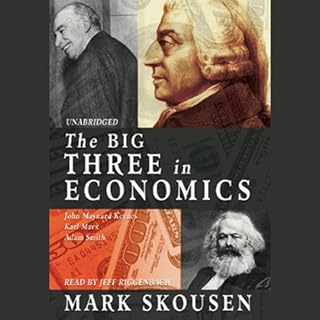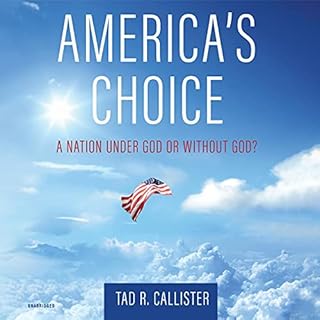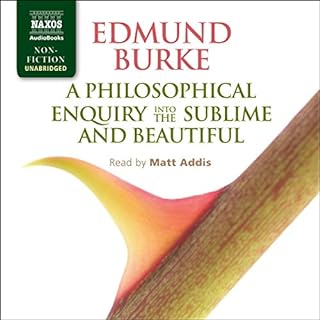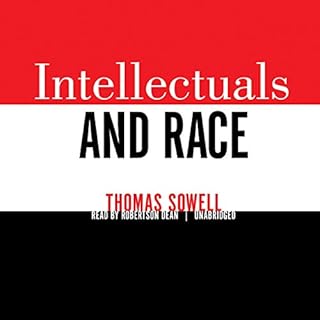Easy Rhino
- 16
- reviews
- 10
- helpful votes
- 169
- ratings
-
McGuffey's Eclectic Readers
- Primer and First Reader
- By: William McGuffey
- Narrated by: Robin Field
- Length: 1 hr and 46 mins
- Unabridged
-
Overall5 out of 5 stars 3
-
Performance5 out of 5 stars 3
-
Story5 out of 5 stars 3
Born in 1800, William Holmes McGuffey had a remarkable ability to memorize, and could commit to mind entire books of the Bible. After becoming a teacher at the age of 14, classroom size was just one of several challenges faced by McGuffey. In many one-teacher schools, students - ages varied from six to twenty-one, and few textbooks existed. In 1835, a publishing firm asked McGuffey to create a series of graded Readers for primary level students. The series consisted of stories, poems, essays and speeches and it is estimated that at least 120 million copies of McGuffey's Readers were sold between 1836 and 1960.
-
5 out of 5 stars
-
Good for first or second grade
- By Easy Rhino on 11-06-23
- McGuffey's Eclectic Readers
- Primer and First Reader
- By: William McGuffey
- Narrated by: Robin Field
Good for first or second grade
Reviewed: 11-06-23
I look forward to reading this to my grandkids. We have had these books in our homeschool for a long time. When reading them I often think what the world would be like if we still used these McGuffey Readers in public schools. So many problems would be avoided; problems which, I’m afraid, can now only be avoided by teaching your children yourself. And what could be more natural than teaching your own children. Give it a try. The results and lifelong problems your children will escape will surprise you.
Something went wrong. Please try again in a few minutes.
You voted on this review!
You reported this review!
-
The Big Three in Economics
- Adam Smith, Karl Marx, and John Maynard Keynes
- By: Mark Skousen
- Narrated by: Jeff Riggenbach
- Length: 9 hrs and 6 mins
- Unabridged
-
Overall4 out of 5 stars 656
-
Performance4.5 out of 5 stars 491
-
Story4 out of 5 stars 491
The Big Three in Economics reveals the battle of ideas among the three most influential economists in world history: Adam Smith, representing laissez faire; Karl Marx, reflecting the radical socialist model; and John Maynard Keynes, symbolizing big government and the welfare state. History comes alive in this fascinating story of opposing views that continue to play a fundamental role in today's politics and economics.
-
3 out of 5 stars
-
Cut and paste
- By Jan on 05-25-07
- The Big Three in Economics
- Adam Smith, Karl Marx, and John Maynard Keynes
- By: Mark Skousen
- Narrated by: Jeff Riggenbach
Excellent
Reviewed: 10-28-22
Great explanation of Adam Smith, Karl Marx, and John Maynard Keynes, their different economic philosophies, how they came about, and their impact. Interesting how Marxism is based entirely on the labor theory of value, or the idea that the value of something is based entirely on how much labor was put into it, and therefore those who perform the labor should be entitled to the entire profit. Marx completely ignores the value that entrepreneurs add through the organization and running of businesses, the risks involved, and investment to get it going and continue growing. Not to mention the obvious notion that the value of something is based not primarily on its labor, but on its utility, or its tendency to improve a person’s life or enjoyment, regardless of how many hours it took to make.
And it’s surprising that Keynes still holds so much influence. His emphasis on “full employment” being the primary goal is still voiced by politicians and central banks, but ignores the impact of inflation and deficits. The argument that “we owe it to ourselves” which is taught so much in schools is directly from Keynes; it’s interesting to learn more about the source of these financial and economic fallacies.
Marx has been proved wrong time and time again throughout history. Keynes has also been proved wrong repeatedly, but not in as devastating a manner as Marxism. However, governments can’t spend and increase deficits indefinitely. Ultimately, Adam Smith will once again be proven correct in a dramatic way - not only in his description of the most successful economic theory, but in its consistency with human nature and fundamental and eternal principles. As Smith put it, “What is prudence in the conduct of every private family can scarce be folly in that of a great kingdom.”
Something went wrong. Please try again in a few minutes.
You voted on this review!
You reported this review!
-
Doesn't Hurt to Ask
- Using the Power of Questions to Communicate, Connect, and Persuade
- By: Trey Gowdy
- Narrated by: Trey Gowdy
- Length: 8 hrs and 52 mins
- Unabridged
-
Overall5 out of 5 stars 1,838
-
Performance5 out of 5 stars 1,595
-
Story5 out of 5 stars 1,578
You do not need to be in a courtroom to advocate for others. You do not need to be in Congress to champion a cause. From the boardroom to the kitchen table, opportunities to make your case abound, and Doesn't Hurt to Ask shows you how to seize them. By blending gripping case studies from nearly two decades in a courtroom and four terms in national politics with personal stories and practical advice, Trey Gowdy walks you through the tools and the mindset needed to effectively communicate your message.
-
5 out of 5 stars
-
Using questions to persuade!
- By Wayne on 08-19-20
- Doesn't Hurt to Ask
- Using the Power of Questions to Communicate, Connect, and Persuade
- By: Trey Gowdy
- Narrated by: Trey Gowdy
Surprised by Trey’s comments at the end
Reviewed: 04-30-22
Trey surprised me at the end of the book by mocking those who think the Constitution is an inspired document. Trey — it is perhaps the document that has done more good in the world than any other. Quoting Gladstone, “I have always regarded that constitution as the most remarkable work known to man in modern times, to have been produced at a single stroke, so to speak, in its application to political affairs.” Trey can’t subscribe to such views because of the 3/5 compromise and because it didn’t grant women the right to vote. Trey betrays his poor educational background. The 3/5 compromise was obviously an effort to weaken slavery, and in combination with the established date to prohibit the future importation of slaves, an effort to end it altogether. And back when marriage was nearly universal, men were viewed as voting for the household, with husband and wife being ‘one’ under the Common Law, in purpose and intent — certainly not the marital setting today, to the detriment of society. Just read Alexis de Tocqueville‘s Democracy in America for a further explanation. So few have actually read contemporary works like that, but instead rely on modern drivel. Trey admits earlier in the book that he had read virtually nothing until well into adulthood. We have public schools to thank for that.
Something went wrong. Please try again in a few minutes.
You voted on this review!
You reported this review!
1 person found this helpful
-
The Autobiography of Calvin Coolidge
- Authorized, Expanded, and Annotated Edition
- By: Calvin Coolidge, Amity Shlaes - editor, Matthew Denhart - editor
- Narrated by: Terence Aselford
- Length: 8 hrs and 43 mins
- Unabridged
-
Overall4.5 out of 5 stars 218
-
Performance4.5 out of 5 stars 191
-
Story4.5 out of 5 stars 190
Today Americans of all backgrounds are on the hunt for a different political model. In fact, such a model awaits them, if only they turn their eyes to their own past...to America’s 30th president, Calvin Coolidge. Coolidge’s masterful autobiography offers urgent lessons for our age of exploding debt, increasingly centralized power, and fierce partisan division. This expanded and annotated volume, edited by Coolidge biographer Amity Shlaes and authorized by the Coolidge family, is the definitive edition of the text....
-
3 out of 5 stars
-
boring
- By mtparis on 10-02-21
- The Autobiography of Calvin Coolidge
- Authorized, Expanded, and Annotated Edition
- By: Calvin Coolidge, Amity Shlaes - editor, Matthew Denhart - editor
- Narrated by: Terence Aselford
Our greatest president?
Reviewed: 03-12-22
After listening to this autobiography and the several speeches, I’ve come to believe that Calvin Coolidge was our greatest president since Lincoln. The soundness and temperance of his policies, his reverence for America’s principles, and his understanding of “the practical side of government,” which he learned from his father, established a stable environment and setting that enabled unprecedented advances culminating in the industrial revolution. During his presidency, people started to work 5 days a week instead of 6 because of the great advances in productivity. He had a reverence for God, family, and country, unlike modern presidents who mock God, undermine the institution of the family, and apologize for our nation’s blessed heritage. We need more men like him in our day.
What’s funny is I remember my teachers and textbooks attacking President Coolidge and his administration. If most of what you’ve learned comes from your public education, I feel sorry for you. As Adam Smith said, “Surely no acquirement which can possibly be derived from what is called a public education can make any sort of compensation for what is almost certainly and necessarily lost by it.”
Something went wrong. Please try again in a few minutes.
You voted on this review!
You reported this review!
-
Being George Washington
- By: Glenn Beck
- Narrated by: Ron McLarty
- Length: 9 hrs and 42 mins
- Unabridged
-
Overall4.5 out of 5 stars 1,218
-
Performance4.5 out of 5 stars 1,073
-
Story4.5 out of 5 stars 1,078
If you think you know George Washington, think again. This is the amazing true story of a real-life superhero who wore no cape and possessed no special powers—yet changed the world forever. It's a story about a man whose life reads as if it were torn from the pages of an action novel: Bullet holes through his clothing. Horses shot out from under him. Unimaginable hardship. Disease. Heroism. Spies and double-agents. And, of course, the unmistakable hand of Divine Providence that guided it all.
-
5 out of 5 stars
-
Awe Inspiring!!
- By Bryce on 12-14-11
- Being George Washington
- By: Glenn Beck
- Narrated by: Ron McLarty
Lessons and Inspiration from History
Reviewed: 09-25-21
Enjoyed learning about George Washington with many original quotes from our first and greatest president.
Would like to check out the writings of George Washington that UVA is publishing. How much better we could be as a country if we followed his counsel.
Something went wrong. Please try again in a few minutes.
You voted on this review!
You reported this review!
-
America’s Choice
- A Nation Under God or Without God
- By: Tad R. Callister
- Narrated by: Tad R. Callister
- Length: 10 hrs and 58 mins
- Unabridged
-
Overall5 out of 5 stars 97
-
Performance5 out of 5 stars 88
-
Story5 out of 5 stars 86
America’s Choice asks, “What is the greatest challenge facing our society today?” The economy, national security, immigration, gun control, poverty, racism, crime, national pandemics, climate change? While each of these is a valid concern and deserves attention, none of them strikes at the heart of our greatest challenge, namely, finding a way to build stronger homes and in the process bringing about a return to family, God, and moral values. To put our prime focus on challenges other than these is to strike at the leaves, not the root of the problem.
-
5 out of 5 stars
-
Amazing, very needed book!
- By mifflinity on 11-14-24
- America’s Choice
- A Nation Under God or Without God
- By: Tad R. Callister
- Narrated by: Tad R. Callister
Truthful and Courageous
Reviewed: 08-14-21
Magnificent! Tad Callister is the Captain Moroni of our day. Every chapter is full of truth and the divine recipe to restore America’s greatness. Religious leaders, parents, teachers, and leaders in every station of life ought to listen and learn to adopt God’s counsel in their responsibilities.
Ye are the light of the world. A city that is set on an hill cannot be hid. Neither do men light a candle, and put it under a bushel, but on a candlestick; and it giveth light unto all that are in the house.
Stop putting God’s word under a bushel, but proclaim it courageously as Tad has so magnificently done.
Something went wrong. Please try again in a few minutes.
You voted on this review!
You reported this review!
-
A Philosophical Enquiry into the Sublime and Beautiful
- By: Edmund Burke
- Narrated by: Matt Addis
- Length: 5 hrs and 52 mins
- Unabridged
-
Overall4 out of 5 stars 24
-
Performance4.5 out of 5 stars 21
-
Story4 out of 5 stars 20
In A Philosophical Enquiry, Edmund Burke sets out to define the nature of beauty and sublimity, and establish an objective criterion for discussing aesthetics. His definition of beauty as rooted in pleasure and sexuality, and the sublime in pain and survival, aligned him with the empiricists John Locke and David Hume, as he replaced the metaphysics of Plato's aesthetics with a psychological and physiological perspective.
-
5 out of 5 stars
-
Ought to be read more
- By Easy Rhino on 06-19-21
- A Philosophical Enquiry into the Sublime and Beautiful
- By: Edmund Burke
- Narrated by: Matt Addis
Ought to be read more
Reviewed: 06-19-21
If Burke were read more in public schools, our society would not be so messed up.
Something went wrong. Please try again in a few minutes.
You voted on this review!
You reported this review!
3 people found this helpful
-
Make Your Bed
- Little Things That Can Change Your Life...and Maybe the World
- By: Admiral William H. McRaven
- Narrated by: Admiral William H. McRaven
- Length: 1 hr and 53 mins
- Unabridged
-
Overall4.5 out of 5 stars 20,027
-
Performance4.5 out of 5 stars 17,423
-
Story4.5 out of 5 stars 17,347
If you want to change the world, start off by making your bed. On May 17, 2014, Admiral William H. McRaven addressed the graduating class of the University of Texas at Austin on their Commencement day. Taking inspiration from the university's slogan, "What starts here changes the world," he shared the ten principles he learned during Navy Seal training that helped him overcome challenges not only in his training and long Naval career, but also throughout his life; and he explained how anyone can use these basic lessons to change themselves - and the world - for the better.
-
4 out of 5 stars
-
Watch the YouTube video
- By A. Yoshida on 01-31-18
- Make Your Bed
- Little Things That Can Change Your Life...and Maybe the World
- By: Admiral William H. McRaven
- Narrated by: Admiral William H. McRaven
The Fuller Sea Stories Recommended
Reviewed: 02-22-21
All of the stories here are excerpts from Admiral McRaven's larger book, Sea Stories. And the end of the book is a transcript of Admiral McRaven's 2014 University of Texas Commencement Speech. I would recommend Sea Stories for a fuller account of each story, as the ones here just touch the surface.
Something went wrong. Please try again in a few minutes.
You voted on this review!
You reported this review!
-
Intellectuals and Race
- By: Thomas Sowell
- Narrated by: Robertson Dean
- Length: 5 hrs and 43 mins
- Unabridged
-
Overall5 out of 5 stars 2,285
-
Performance5 out of 5 stars 2,029
-
Story5 out of 5 stars 2,011
Intellectuals and Race is a radical book in the original sense - one that goes to the root of the problem. The role of intellectuals in racial strife is explored in an international context that puts the American experience in a wholly new light. The book explores the incentives, the visions, and the rationales that drive intellectuals at the highest levels to conclusions that have often turned out to be counterproductive and even disastrous, not only for particular racial or ethnic groups but for societies as a whole.
-
5 out of 5 stars
-
A Satisfying Indictment of the Intelligentsia
- By Andrew on 12-27-16
- Intellectuals and Race
- By: Thomas Sowell
- Narrated by: Robertson Dean
Great description of race
Reviewed: 12-03-20
Sowell explains how the influence of intellectuals on race has been misguided for over a century. First they advocated eugenics, arguing that race is everything in determining a person’s intelligence. Now they argue that if a particular race is on average less wealthy or less skilled or less intelligent, it is because they are discriminated against, or what they now call systemic racism. This completely ignores history (e.g., how a race fared at a time when everyone acknowledges there was more rampant racism compared to now) and also ignores the cultural influence of race and the experience of other races in other countries similarly situated. In short, intellectuals fan the flames of anger and victimhood to the great detriment of society. Wouldn’t it be nice if intellectuals advocated for stable, two-parent families, hard work in schools, personal development, and stopped advocating that people are victims, that their situation is not based on their actions but based on others’ discriminatory treatment of them.
Something went wrong. Please try again in a few minutes.
You voted on this review!
You reported this review!
-
The Theory of Moral Sentiments
- By: Adam Smith
- Narrated by: Michael Lunts
- Length: 16 hrs and 28 mins
- Unabridged
-
Overall4.5 out of 5 stars 123
-
Performance4.5 out of 5 stars 111
-
Story4.5 out of 5 stars 109
The Theory of Moral Sentiments (1759) was the first major text by Adam Smith who, seven years later, was to publish what was to become one of the major economic classics, The Wealth of Nations (1776). However, Smith regarded The Theory of Moral Sentiments as his most important work because in it he identified the profound human instinct to act not necessarily in self-interest but through, as he phrased it, a ‘mutual sympathy of sentiments’.
-
5 out of 5 stars
-
What Makes Humans Humane
- By Zeno on 10-06-18
- The Theory of Moral Sentiments
- By: Adam Smith
- Narrated by: Michael Lunts
A Wonderful Description of Human Nature
Reviewed: 08-03-20
Adam Smith’s Theory of Moral Sentiments is a magnificent description of human nature and an eloquent explanation of virtue and vice, and what is natural and unnatural. It is one of the best books ever written; how unfortunate it is not more widely read and studied.
Something went wrong. Please try again in a few minutes.
You voted on this review!
You reported this review!










